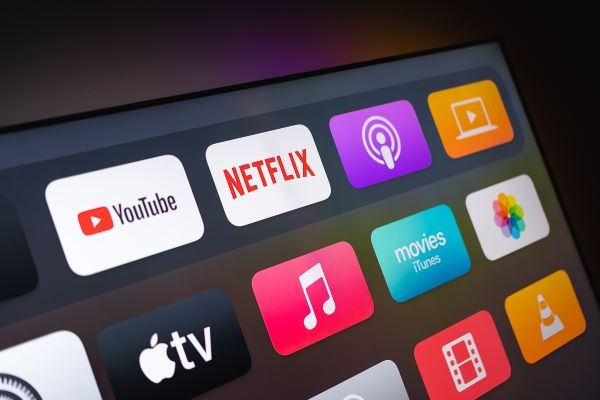How Subscription Models Are Transforming Commerce?
In the dynamic world of digital commerce, one trend is making waves: subscription models. From Netflix to monthly gourmet coffee deliveries, the shift to subscription-based services is undeniable.
As businesses grapple with this change, individuals equipped with a Master of Business Administration (MBA) degree find themselves uniquely positioned to navigate and leverage this trend. Let's delve into how subscription models are revolutionizing commerce and why an MBA can be a game-changer.
1. Understanding the Subscription Model
At its core, a subscription model is where customers pay a recurring fee to access products or services. This can be on a monthly, quarterly, or yearly basis. Instead of making a one-off purchase, consumers receive ongoing value, while businesses benefit from regular income.
At its essence, a subscription model revolves around customers committing to a recurring payment schedule to gain access to products or services. Unlike the standard transactional system where a consumer pays once to obtain a single product or service, the subscription framework ensures that consumers receive consistent and continual value over a specified period.
The beauty of subscription models lies in their flexibility. Payment schedules can vary based on the business's offerings and consumer preferences. This can range from weekly, monthly, quarterly, to annual subscriptions. For instance, a weekly subscription might be ideal for perishable goods like fresh produce, while annual subscriptions might suit software licenses or premium digital content platforms.
Many businesses provide different subscription tiers, each with its own pricing and set of benefits. For example, a streaming service might offer a basic plan with standard definition streaming on one device, and a premium plan with high-definition streaming on multiple devices, exclusive content, and fewer ads. This tiered structure allows consumers to choose a plan that best suits their needs and budget.
A significant characteristic of many subscription models is the automatic renewal feature. This ensures that customers continue to receive the service without interruption. It's convenient for consumers as they don't have to remember to renew manually. For businesses, it helps in maintaining a consistent revenue stream and reduces the administrative burden of manual renewals.
While the idea of subscriptions has been around for a while—think of newspaper or magazine subscriptions—the digital age has exponentially expanded its potential. Now, everything from software to fashion, groceries to online courses, can be accessed through this model, making it a versatile and scalable strategy for businesses of all sizes.
2. Business Benefits & The MBA Edge
The subscription model offers a myriad of advantages to businesses. When combined with the expertise and insights that come from an MBA education, these benefits can be fully realized and even amplified:
a. Predictable Revenue
Consistent Cash Flow: Subscription models ensure that businesses have a steady inflow of funds. This consistency aids in budget planning, operations, and scaling strategies.
Reduced Financial Volatility: Instead of relying on sporadic high-sales periods, businesses can anticipate a more uniform revenue pattern, making it easier to manage and allocate resources.
MBA Insight: Individuals with an MBA are equipped with skills in financial modeling, risk management, and predictive analytics. These skills enable them to analyze subscription metrics, such as retention rates and lifetime value, to ensure the model's sustainability and growth. By understanding financial trends and patterns, they can make informed decisions to enhance profitability.
b. Enhanced Customer Loyalty
Ongoing Engagement: Subscribers interact with brands more frequently, paving the way for stronger relationships and trust-building over time.
Feedback Loop: Regular interactions also mean businesses receive consistent feedback, allowing them to tweak offerings based on customer preferences and enhance the user experience.
MBA Insight: MBA curricula often emphasize the importance of customer-centric strategies and provide tools to analyze consumer behavior. This knowledge allows MBA holders to tailor subscription offerings more effectively, ensuring that the value proposition resonates with the target audience. By leveraging techniques like customer segmentation and personalized marketing, they can enhance loyalty and reduce churn.
c. Opportunities for Upselling and Cross-Selling
Personalized Recommendations: With a deep understanding of subscriber preferences, businesses can suggest complementary products or premium tiers that enhance the user experience.
Lifecycle Marketing: By analyzing a subscriber's journey, businesses can introduce new products or services at opportune moments, leading to increased sales.
MBA Insight: MBA programs often delve into strategic marketing, sales funnel optimization, and consumer journey mapping. Graduates are thus adept at identifying potential upsell and cross-sell opportunities, designing campaigns to maximize conversions, and ensuring that these strategies align with the brand's broader goals.
In essence, while the subscription model inherently offers various business benefits, the nuanced understanding and strategic approach provided by an MBA education can further bolster its success. Whether it's optimizing revenue, enhancing loyalty, or capitalizing on cross-selling, an MBA offers the tools and insights to make the most of the subscription revolution.
3. Benefits for Consumers
In today's fast-paced world, consumers are always on the lookout for services and products that offer them maximum value while aligning with their lifestyles. Subscription models have emerged as a go-to for many, providing various advantages:
a. Convenience
Hassle-Free Access: Subscriptions eliminate the need for repeated purchases, ensuring that consumers have uninterrupted access to desired products or services.
Home Delivery: Many subscription models, especially in retail, include home delivery, saving consumers the time and effort of in-store shopping.
Customization: Some subscriptions, especially in areas like meal kits or fashion, allow for tailored experiences based on individual preferences, ensuring that consumers receive products most relevant to their tastes and needs.
b. Cost-Effective
Bulk Savings: Subscribing often brings down the unit cost of items, especially evident in services like streaming platforms where unlimited access is offered for a fixed fee.
Discounts and Offers: Many subscription services entice consumers with exclusive discounts, promotional rates, and loyalty bonuses.
Budgeting: Regular and predictable expenses make it easier for consumers to manage and anticipate their budgets.
c. Discovery
Exploration of New Products: Monthly boxes, whether in beauty, food, or books, introduce consumers to products they might not have bought otherwise.
Exclusive Access: Some subscription models provide early or exclusive access to products, events, or sales, making subscribers feel like they're part of an elite club.
Learning Opportunities: Subscriptions, especially in the areas of online courses or content platforms, facilitate continuous learning and exposure to new ideas and skills.
4. An MBA's Insight into Industry Trends
With commerce and industry landscapes continuously evolving, staying updated on the latest trends becomes crucial. This is where an MBA program stands out:
Beauty and Personal Care
Case Study Focus: Analyzing successful ventures like Birchbox or Ipsy, MBA programs can offer insights into how they leveraged consumer trends, utilized data analytics for personalization, and scaled their operations.
Fashion
Strategic Analysis: MBA students often explore the dynamics of ventures like Stitch Fix or Rent the Runway, understanding how they meld fashion with tech, and the logistics behind their personalized offerings.
Groceries and Meal Kits
Supply Chain Management: Understanding the logistics behind companies like Blue Apron or HelloFresh can be an integral part of an MBA curriculum. It delves into sourcing ingredients, optimizing delivery schedules, and ensuring freshness and quality.
Software
Monetization Strategies: Transitioning from one-time purchases to subscription models presents challenges. Analyzing the strategies of giants like Adobe or Microsoft, MBA programs equip students with insights into pricing strategies, customer retention, and creating sustainable revenue models.
An MBA program's strength lies in its holistic approach, blending theoretical knowledge with real-world case studies. As subscription models become ubiquitous across industries, the program ensures that graduates are well-prepared to navigate, innovate, and lead in this space.
5. Challenges & The MBA Advantage
While subscription models present numerous advantages, they aren't without challenges. However, armed with an MBA, professionals are better positioned to anticipate, tackle, and turn these challenges into opportunities:
a. Churn Rate
Understanding the Issue: Churn rate, or the percentage of subscribers who end their subscriptions within a given time period, can be a significant hurdle. High churn rates indicate dissatisfaction, fleeting customer loyalty, or better competitive offers.
Data-Driven Insights: MBA programs often emphasize data analytics, enabling graduates to mine subscriber data, identify patterns, and ascertain the main reasons for churn.
Targeted Retention Strategies: By understanding the reasons behind churn, MBA holders can devise specific strategies. This might include personalizing content, offering loyalty discounts, or improving customer service responsiveness.
Predictive Analysis: Furthermore, with advanced analytics skills, MBA graduates can predict potential churn before it happens, allowing businesses to proactively address issues and retain subscribers.
b. Market Saturation
Analyzing the Landscape: With the growth in popularity of subscription models, many industries are experiencing a flood of similar services, leading to subscription fatigue among consumers.
Differentiation Strategies: MBA curricula often focus on competitive strategy, teaching graduates how to differentiate their offerings, whether through unique value propositions, superior user experience, or exclusive content.
Innovative Thinking: With their exposure to a wide range of business cases and scenarios, MBA holders can bring fresh perspectives, identifying gaps in the market or emerging trends that others might overlook.
Agility and Adaptation: An MBA program emphasizes the importance of adaptability in business. Thus, graduates learn to pivot their strategies based on market feedback, ensuring relevance even in saturated markets.
c. Initial Investment
Resource Allocation: Setting up a subscription model, especially in the realms of technology infrastructure, logistics, and marketing, can be capital-intensive.
Financial Modeling: MBA programs provide rigorous training in financial planning and modeling. Graduates can forecast potential returns on investment, ensuring that funds are allocated efficiently and the business model is viable in the long run.
Risk Management: Equipped with an understanding of risk assessment, MBA holders can identify potential pitfalls, ensuring that investments are made judiciously and with a clear understanding of potential challenges.
Fundraising and Capital Acquisition: With their knowledge of finance, MBA graduates can also explore various avenues for raising initial capital, whether through venture capital, loans, or other financial instruments.
In essence, while challenges in the subscription model are inherent, the breadth and depth of an MBA education offer tools, frameworks, and insights to navigate these complexities. An MBA not only prepares professionals to address these challenges head-on but also to turn potential pitfalls into pathways for growth and differentiation.
In Conclusion
The subscription model is reshaping commerce. To remain at the forefront of this transformation, an MBA isn't just an asset—it's an advantage. Whether you're an entrepreneur, a business leader, or an aspiring professional, an MBA can provide the insights and skills needed to harness the power of subscription models in the modern business world.

Apply Now - American Vision University - AVU
Related Posts
By accepting you will be accessing a service provided by a third-party external to https://avu.education/
Connect with us
155 N. Riverview Dr,
Anaheim Hills,
CA 92808, USA
-
Main Campus Operator949-501-3701
-
Email info@avu.education




